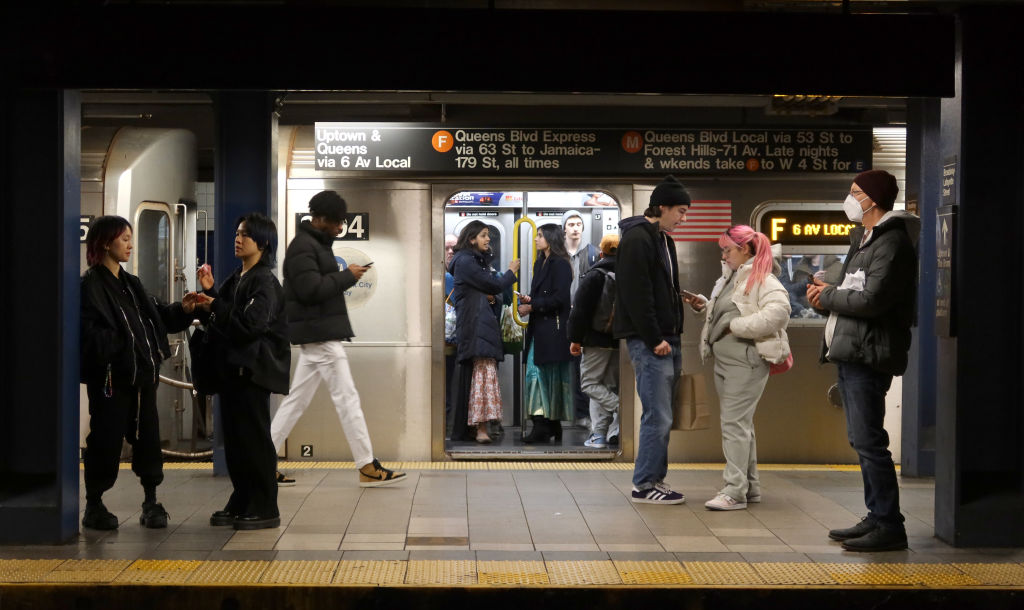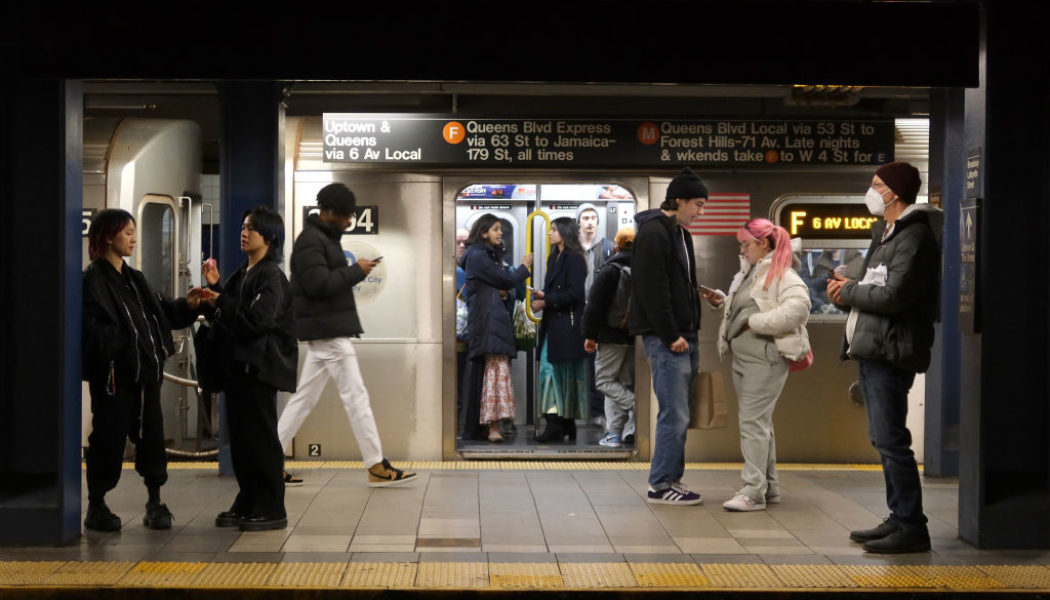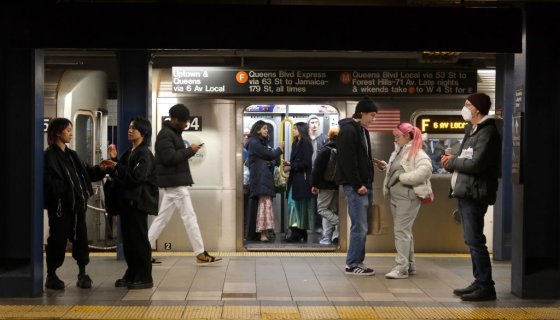
Source: Gary Hershorn / Getty
A medical examiner ruled that the death of Jordan Neely, a Black man put in a chokehold on a New York City subway train, was a homicide.
On Wednesday (May 3), the results of the autopsy by the city’s medical examiner were released deeming that the 30-year-old died by a compression of the neck. Neely was in the midst of a mental health crisis on a northbound F train that was stopped at the Broadway-Lafayette station on Monday (May 1), when a white passenger placed him in a chokehold. The incident was caught on video by other passengers.
“This is a solemn and serious matter that ended in the tragic loss of Jordan Neely’s life,” a spokesperson from the Manhattan District Attorney’s office said in a statement. “As part of our rigorous ongoing investigation, we will review the Medical Examiner’s report, assess all available video and photo footage, identify and interview as many witnesses as possible, and obtain additional medical records. This investigation is being handled by senior, experienced prosecutors and we will provide an update when there is additional public information to share.”
The white straphanger, a former Marine, who placed Neely in the chokehold was arrested by NYPD officers, but let go with no criminal charges. Authorities said that they were waiting on the medical examiner’s results and that the individual was still under investigation. News of the tragic incident has sparked considerable outrage, with many noting Neely being painted in a bad light by some media outlets by highlighting his arrest record. Others, including Manhattan Borough President Mark Levine, noted that he was well known as a Michael Jackson impersonator on the subways, uploading clips of him dancing online.
Mayor Eric Adams issued a statement on the killing, stopping well short of addressing the graphic nature of the footage of the unidentified man putting Neely in the chokehold. “Any loss of life is tragic. There’s a lot we don’t know about what happened here, so I’m going to refrain from commenting further,” he said before citing his administration’s “record investments” in providing mental health support to those on the streets.
In a TV interview, Adams stated he would wait on investigators before moving forward. “I was a former transit officer, and I responded to many jobs where you had a passenger assisting somewhat. So we can’t blanketly say what a passenger should or shouldn’t do in a situation like that,” he said.










